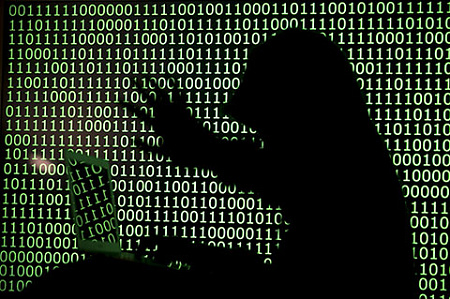
How a Russian Hacker Is Worse Than the Orange Menace
(Russia) on 20 February 2018
by (link to original)
Former CIA agent Steven Hall and intelligence expert Loch Johnson have told The New York Times that Russia’s alleged meddling in American elections isn’t something bizarre, but on the contrary, a cyber age reproduction of what the U.S. itself has been doing for many years. Washington, according to Hall and Johnson, was actively involved in elections in the Balkans, Iraq, Afghanistan and also in Russia in 1996, when the threat of Communist revanche seemed real. The CIA reportedly used brochures, banners, mailings, and also published false information in foreign newspapers. In the 21st century, appropriately enough, new methods and opportunities are used, including social media and hacking, but the principles of the game remain the same.
At the same time, in the opinion of The New York Times interviewees, American and Russian meddling in elections abroad can’t be placed in the same category. The objective of American intelligence operations has been to help individual countries develop democracy, note Hall and Johnson, whereas Russia’s objective is to “undermine the democratic order.”*
Democracy implies the universal right to vote, the sanctity of procedure, and the independence of institutions. Russia is accused of meddling in the U.S. presidential election, helping Donald Trump and hindering Hillary Clinton. Moscow is also suspected of trying to influence the French election process during which Marine Le Pen fought for the presidency against Emmanuel Macron. Neither Trump nor Le Pen were going to deprive anyone of the right to vote. They didn’t criticize well-known procedures. Trump, having taken office, has come into conflict with the liberal press, but the institutions, including the judiciary and Congress, haven’t weakened under him. It would have been the same in France under Le Pen. It’s not clear how Russia could interfere with the democratic process in these countries.
If supporting a candidate or party that has a tendency to monopolize power and limit the independence of institutions is undermining the democratic order, then the world is rising to the occasion even without Russia’s help. Hungary, Turkey and Poland are striking examples of this. The universal behavior of the electorate is to vote for simple solutions by supporting candidates with populist rhetoric. The universal behavior of the politician is to play upon the public’s resentment. By hacking databases and publishing ads on Facebook, you can add fuel to the fire, but you can’t decide the matter.
The stability of American institutions and procedures allows the U.S. to market democracy as its global project. Accordingly, Washington acts as an authoritative interpreter that defines who is democratic and who is not. Not only does Russia not have a large-scale civilizational project for the whole world, it doesn’t even have one for that which is abroad nearby. In recent years, it’s declared merely a desire to become a leader of global conservatism. Hence, the U.S., in defending its interests in elections in Iraq or the Balkans, may attach global significance to them. Russia, in doing the same thing, can’t pin the right label on it and achieve a broad consensus. It’s a war of words, of languages, and Washington has an advantage.
The Russian elite has previously accused the U.S. many times of meddling in Russia’s internal affairs, including elections. The terms “colored revolution” and “sovereign democracy” were born after this. Back then, this discourse looked rather marginal. Now the American establishment, for all intents and purposes, has normalized such statements. And Russian politicians’ talk about how sanctions lists or the doping scandal are attempts to influence the March 18 election don’t sound any worse than statements about how Trump’s people colluded with the American ambassador and Russian hackers, and predetermined the outcome of the U.S. presidential election.
*Editor's note: The original quotation, accurately translated, could not be verified.

